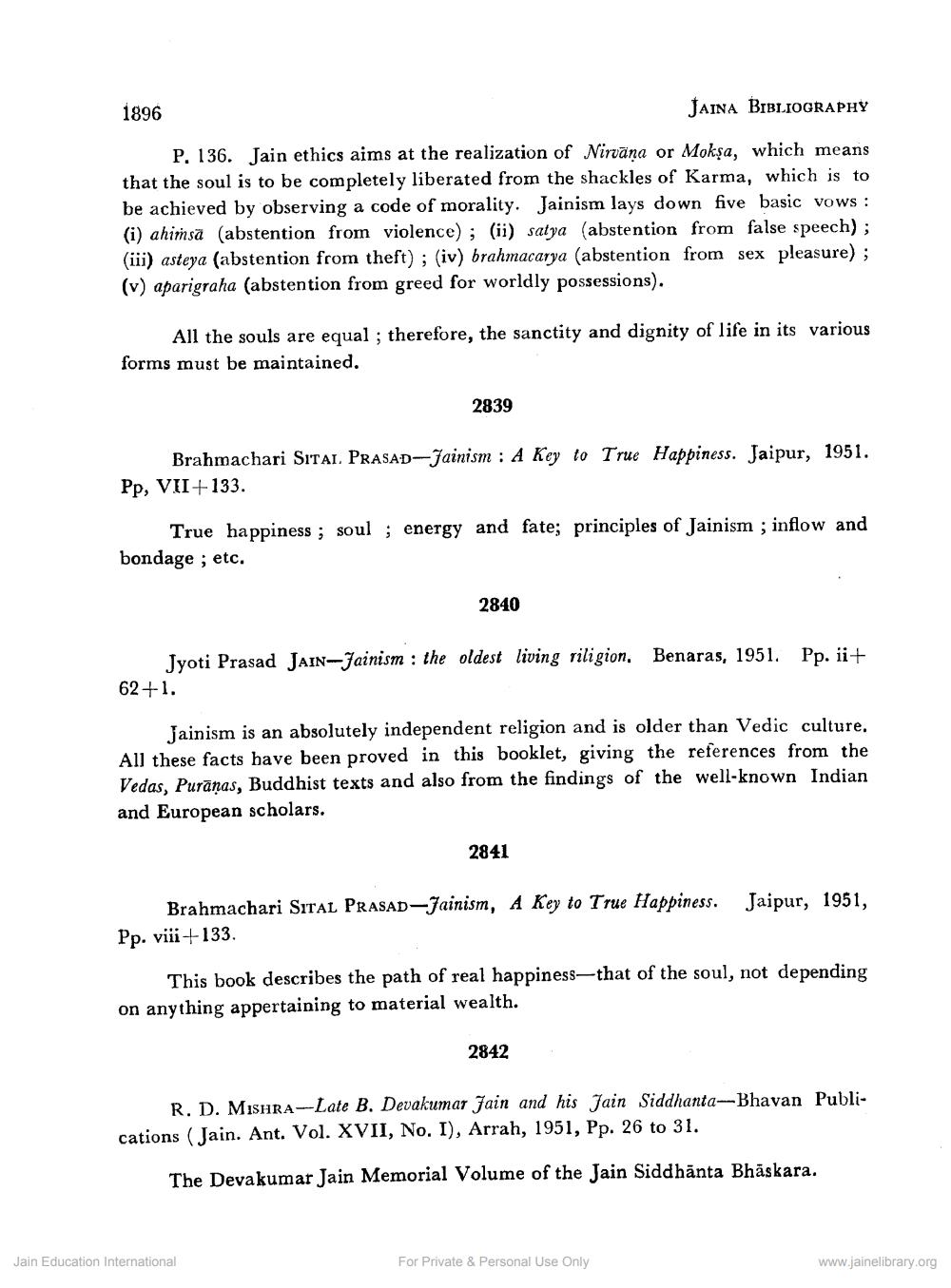________________
1896
JAINA BIBLIOGRAPHY
P. 136. Jain ethics aims at the realization of Nirvāṇa or Mokşa, which means that the soul is to be completely liberated from the shackles of Karma, which is to be achieved by observing a code of morality. Jainism lays down five basic vows : (i) ahimsa (abstention from violence); (ii) satya (abstention from false speech); (iii) asteya (abstention from theft); (iv) brahmacarya (abstention from sex pleasure); (v) aparigraha (abstention from greed for worldly possessions).
All the souls are equal ; therefore, the sanctity and dignity of life in its various forms must be maintained.
2839
Brahmachari SITAI PRASAD-Jainism : A Key to True Happiness. Jaipur, 1951. Pp, VII+133.
True happiness ; soul ; energy and fate; principles of Jainism ; inflow and bondage ; etc.
2840
Benaras, 1951. Pp. ii+
Jyoti Prasad JAIN-Jainism : the oldest living riligion. 62+1,
jainism is an absolutely independent religion and is older than Vedic culture. All these facts have been proved in this booklet, giving the references from the Vedas, Puranas, Buddhist texts and also from the findings of the well-known Indian and European scholars.
2841
Jaipur, 1951,
Brahmachari Sıral PRASAD-Jainism, A Key to True Happiness. Pp. viii +133.
This book describes the path of real happiness—that of the soul, not depending on anything appertaining to material wealth.
2842
R. D. MISHRA-Late B. Devakumar Jain and his Jain Siddhanta-Bhavan Publications (Jain. Ant. Vol. XVII, No. I), Arrah, 1951, Pp. 26 to 31.
The Devakumar Jain Memorial Volume of the Jain Siddhanta Bhaskara.
Jain Education International
For Private & Personal Use Only
www.jainelibrary.org




